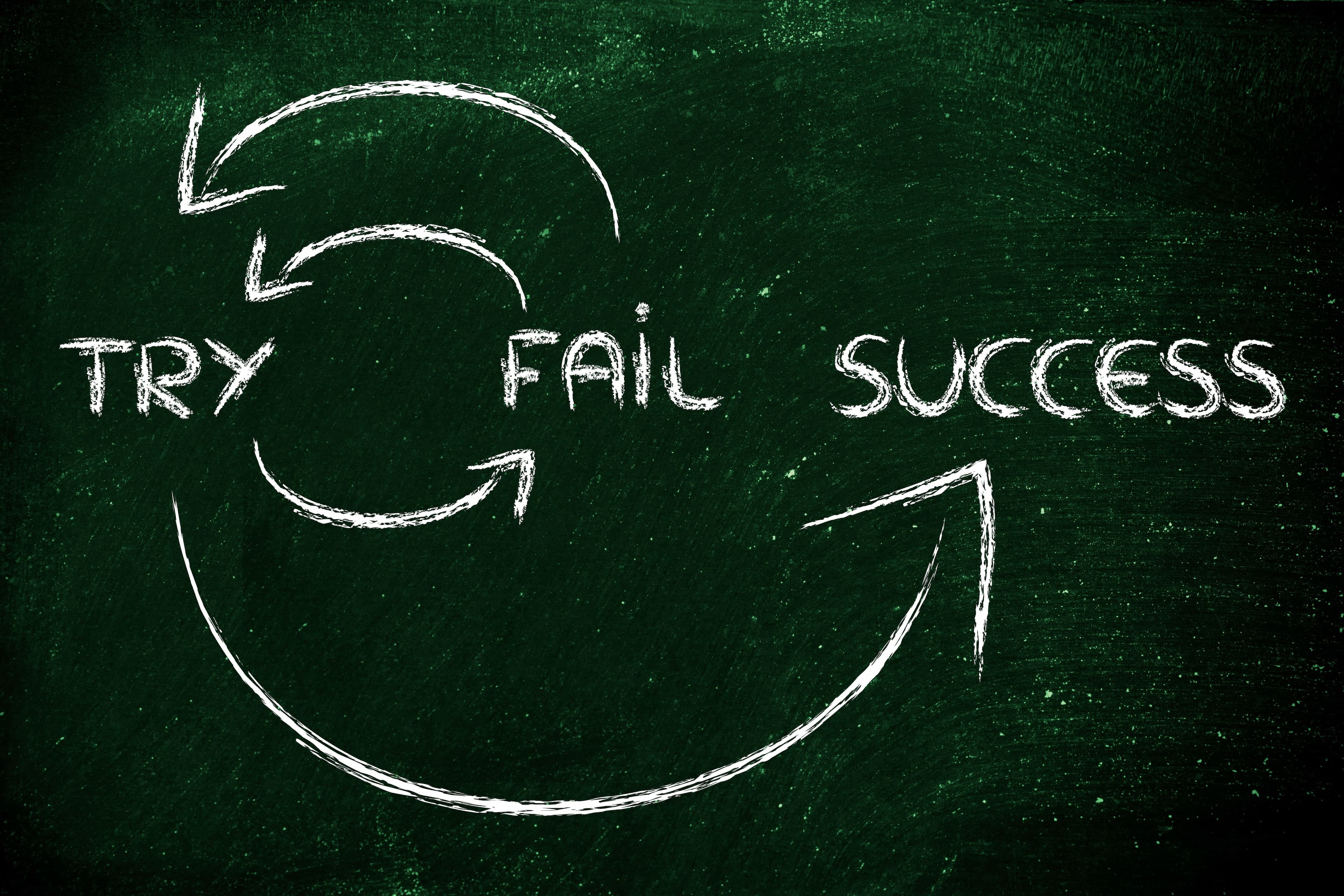Want to Improve Your Job Search? What about Interviewing Ability? Then Get an Elevator Pitch.
To really stand out in the job marketplace, you need to know how to sell yourself. An elevator pitch will help you with the "how."
Being able to present yourself, and what you are looking for, is a skill that every job seeker needs. Finding and applying for jobs that are the right fit for you can be challenging! Once you secure an interview, you then need to be able to talk about yourself and articulate why you are a fit for the job.
Creating an elevator pitch is a way to help you define what you are really looking for--which helps you find it more quickly. It will help you know how to talk about yourself and what you want!
In this post I'll teach you what an elevator pitch is (and isn't), why you need one, how to write it, and the best ways and places to use it.
Here we go!
What is an elevator pitch?
An elevator pitch (also known as an elevator speech) is a pre-written short paragraph (typically 4-8 sentences) about who you are, what you value, and how it relates to the industry you work in. Oftentimes, it finishes off with a call to action or invitation.
The information about yourself that you come up with can be used all over the place--job applications, resumes, cover letters, introductions, LinkedIn profiles, interviews, and social settings.
That is why it is worth taking the time to brainstorm and write one.
After you write it, the expectation is that you practice it (commit it to memory) so that when an opportunity presents itself, you can easily and naturally flow while talking or writing about yourself and what you do.
The name comes from the theory that if you got into an elevator and only had 20-30 seconds to talk to someone, you could get to the point about who you are, what you do, and what you are looking for quickly and concisely.
What an elevator pitch is not:
This is not a "box" or script that you will be held accountable to; elevator pitches aren't static! They are adaptable & can be changed at any moment (even on the fly). It is simply a way to brainstorm and practice beforehand how you want to present yourself professionally.
You DO NOT need to stick to it word for word--EVER! It is completely changeable and should be written using language/words you naturally would use!
So if you are thinking, "Well that sounds great Ryan, but I don't really like the job I'm currently doing and want to find something VERY different."
Simple, then your elevator pitch will be less about what you are currently doing and more about the skills you already have OR the industries you would like to get into. Don't focus on what you don't know; focus on what you do.
With that said, you write one version, but you could turn that one version into five--one for customer service, one for marketing, one for tech related jobs, etc.
Why do I need an elevator pitch?
1. You are going to use variations of it in a variety of places
You will likely use variations of it on your LinkedIn profile, cover letters, resumes, in interviews, and really any networking or social interaction where you are meeting new people and talking about who you are and what you are either A) doing for work now or B) what you want to do for work—long-term or soon or C) your skill sets you currently have or are developing.
We will talk about these places you will likely use your elevator pitch later in this post!
2. It helps you define how you want to brand yourself
This "pitch" is part of a much bigger picture about branding yourself. A concept that I'm going to go into a lot more depth with in future posts (keep an eye out!).
You know how companies brand themselves and their products to make them memorable and relatable to us? Well individuals can do the same thing! You decide what you value and how you want others to perceive you. Then you create "it" (your personal brand) through a variety of avenues.
Some of these avenues include your writing (cover letters, resumes, and profile descriptions), your speaking (screening calls, interviews, networking/social events, and introductions), and definitely through your image/visual brand (pictures/headshots, social media accounts, dress, grooming, general appearance, and how you carry yourself).
How do I write an elevator pitch?
There are a lot of resources on the internet for how to do this! In simplest terms, break it down into three parts:
- Use a greeting and introduce your name
- Identify what it is that you do and how you add unique value to it
- Share what it is you are looking for or wanting--(when appropriate) phrase it as a call to action/invitation
Here are some examples of what I mean:
"Hello there! My name is Jamal Porter. I'm currently a sales representative for a financial planning software company. I love true customer service and going the extra mile to make sure I exceed my clients expectations. Working in sales has been incredible, but I'm looking to broaden my horizons into management or administration. I've really enjoyed working in the tech and financial industries. If your company is looking for someone who can help take them to the next level--please give me a call!"
Hi, I'm Angela Moore, and I'm looking to transition into an office administrative position. I have a background with customer service and am ridiculously organized. I'm interested in human resource functions like writing job descriptions, screening potential candidates, and orchestrating interviews. I'm a great phone personality and believe that the first person people interact with at an office sets the tone for everyone else--that's why I keep a positive and approachable demeanor.
"How's it going? I'm Ally Lawson, but my friends call me ‘Al.' By day, I'm a customer service manager. By night, I'm a travel blogger/creative writer. I thrive on the balance of getting to serve others with my leadership and interpersonal skills, followed up by the creativity of helping people mentally escape to far away, exotic places. Working with people is a unique gift of mine, and I would like to take this skill and combine it with my marketing abilities to help grow your hospitality business. I'm ready to talk when you are; here's my business card. Call anytime!"
"My name is Bradley Allen, and over the last few years of being in retail, I've found a great passion for working with numbers and data. I am currently training to do accounting and bookkeeping and am looking for a position using these skills. I'm meticulous about the details, meeting deadlines, and keeping the morale up of everyone around me!"
"Nice to meet you: I'm Jessica Hart. I'm a marketing executive that oversees print and commercial production; I feel it my calling to help brands find their voice in serving diverse cultures and populations. I'm seeking the right opportunity to take my skill set to a bigger audience. I'm interested in companies that want to expand their diversity in the world market."
Let's be honest, Jamal, Angela, Al, Bradley, and Jessica aren't likely to say their spiel word for word to what is written here. But it is a good thing to have a solidly transcribed way to reflect on who you are in relation to your skill sets, industry, what you do, and where you want to go.
Okay, now it's your turn. Make it uniquely your own!
Take out a piece of paper and just begin free writing anything that comes to mind. Trying to hit the three major points:
- Greeting + your name
- What you do + your unique "touch" or value that you personally add to it
- State what you want + (if appropriate) a call to action
*Remember: if you aren't crazy about what you've previously done for work, do some self-reflection and take a personal inventory. You can actively define more of what you are looking for long-term with work or in your next job. Because this elevator pitch is unique to you, you really can say what you want--talk about where you want to go and what sounds interesting to you!
▢ Once you've done this, begin editing--circle your favorite phrases or words you came up with. Cross out sentences or phrases you aren't that crazy about.
▢ Now rewrite, in simplest terms, what you are left with--try and be concise, but keep your personality.
▢ Best advice ever: once you have gotten to this stage, leave it alone for a day or two, then come back to it with fresh eyes. You will have even more ideas.
▢ Once you have a version you like--get some feedback from people whose opinions you trust.
▢ Take the changes they suggest that sit right with you.
▢ Then PRACTICE using it. Call a friend, voice record yourself, say it in the shower or while in traffic.
*You can do the editing and rewriting process as many times as you want, but if you find yourself getting stuck, ask for feedback from a person you trust. Sometimes speaking our thoughts out loud is the best way to figure out what it is we are wanting or trying to say.
What does this look like in real time?
In reality, you will be using your elevator speech in writing just as much as (or more than) speaking to other people. When it comes to networking, looking for a job, and just talking to people about what it is you do or are looking for workwise, keep in mind that most social settings will allow for more than 20-30 seconds of exchange or conversation. There will be enough time for you to "normally" engage with someone and ask them questions--not just jump into an interaction and say your elevator speech verbatim.
For example: I have a friend who is a dental hygienist. When she graduated, she moved to a larger city to increase her odds of finding a job. She networked with others in her field and found out that in addition to job searching and applying online, she should stop by dental offices that were looking to hire hygienists, ask for the office manager, and introduce herself with a copy of her resume.
When she made these visits, the interactions went something like this:
Janet (my friend, the dental hygienist): "Hi Paul, nice to meet you! I'm Janet Merret, and I recently graduated from dental hygiene school."
Paul (dental office manager): "Great to meet you, Janet! Thanks for coming by."
Janet: "Well thank you for a moment of your time. Is your office fairly fast-paced, because I really love that!"
Paul: "I bet you do; it says here on your resume that you were involved with a volunteer clinic. That's awesome. We do community outreach here as well, especially with young children. Do you have much experience working with kids?"
Janet: "I do! That volunteer clinic was specifically for low-income families, and we served a diversity of patients. I have a reputation for being very gentle but incredibly thorough, especially with kids."
Paul: "That's great; well we would love to have you back for an interview. When is a good time?"
My guess, Janet never gave anyone a full elevator pitch, but she did know her strengths and had practiced sharing them with others so that when it came time to have these conversations--they felt natural and normal for her.
Where to put your elevator pitch to best use
LinkedIn
If you don't already have a LinkedIn account, now's a great time to get one. When you are creating your profile, there is an About section. Once you have solidified what you want your elevator pitch to say, draw from it, and plug parts of it into the About portion of your profile.
Resumes & cover letters
At the top of your resume, the summary/objective section is a perfect place to put a variation of your elevator speech/pitch--adapting what you say to the specific job that you are applying for. Then when you write the cover letter, weave parts of your elevator pitch into it--especially highlights, achievements, or accomplishments you are proud of, or just plain and simple--what excites you!
Interviews
I can pretty much guarantee that at some point in an interview you will be plugging for yourself the exact information that is in your elevator pitch. One of the most under-utilized interview prompts is "Tell us about yourself."
When they ask you to do this, it is easy to think of the surface level information: where you are from, what you enjoy doing (all totally applicable facts to share to help build the picture of who you are), but don't forget to relate it all back to the specific job you are interviewing for and why you have chosen to work in that industry. Really paint the picture for them.
Luckily for you, you already defined these things when you wrote your elevator pitch!
Networking & social interactions (including career fairs)
If it is appropriate to hand deliver your resume (this will depend on the type of job you are applying for) like in the above example, you will be having several mini-conversations about your skill set and abilities. Your elevator speech keeps you on target for what kind of things to mention in these short interactions.
When you go to parties or events, you really never know who you are going to meet and where it might lead. In a really natural way, you can draw from your elevator pitch in these interactions. Just use your logic and be yourself--no need to go into script mode--EVER!
You've got this!
All and all, I hope you are feeling a lot more confident about your ability to present yourself. For some people, it comes naturally and with incredible ease. For others of us, it takes more practice. Put in the effort, and it will bear fruit!
-Ryan

Ryan Kay
Helping people get the career of their dreams!
Related articles

Is Your Nervous System Holding You Back at Work?
Your productivity, focus, and health are all interconnected—and it all starts with your nervous system. Many people don’t realize how a dysregulated nervous system can wreak havoc on their professional lives, from struggling to meet deadlines to feeling overwhelmed when applying for jobs. If you’ve been stuck in a cycle of stress, burnout, and fatigue, the problem may not be your skills or motivation—it may be your nervous system asking for help.

Did School Set Us up to Fail in Our Careers?
A lot of people walk out of the education system expecting someone else to “drive” them through their career. It’s time for you to get in the driver’s seat and actively navigate to where you want to go.